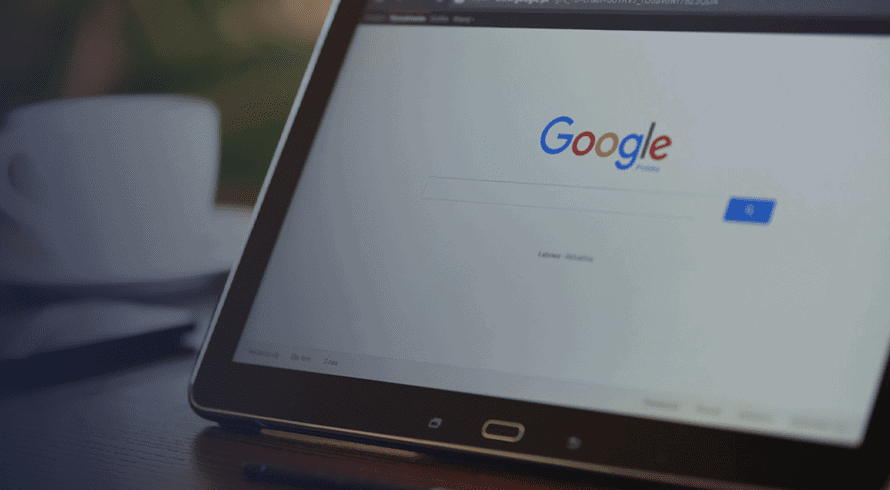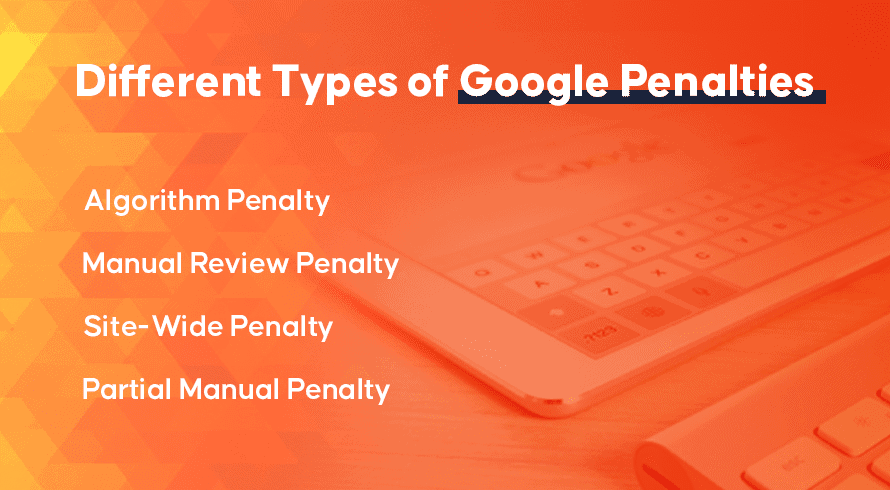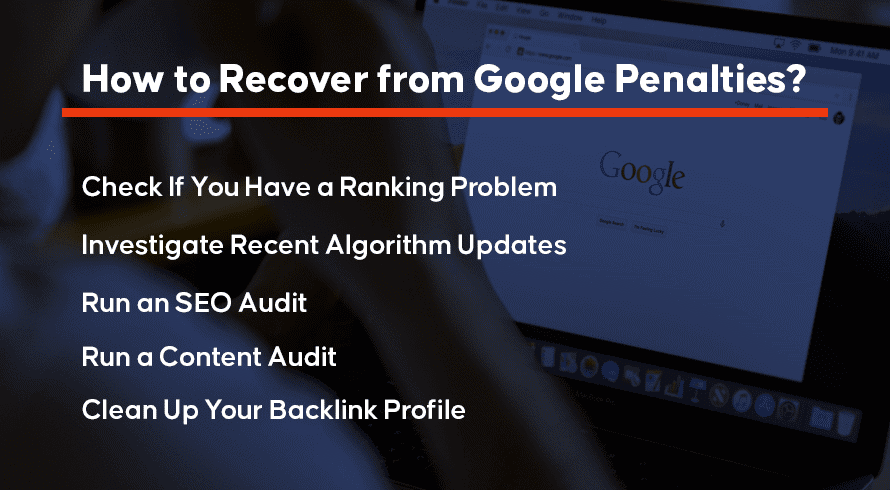Inquivix HQ
1-903, 18 Eonju-ro 146-gil,
Gangnam-gu, Seoul, Korea
06057

A Google penalty can have a devastating impact on the stats of your website. If your business website is no longer rating on the first pages of Google makes you lose traffic immediately, and this is sure to impact your readership and even your sales.
If you think you may have been penalized by Google, don’t panic! This article will run you through how to know if you’ve been penalized, and all the steps you can take to remedy it. Ready to get your website back on track and on good terms with these sneaky Google algorithms.
What Is a Google Penalty?
A Google penalty essentially means that Google has decided to remove your site from their search results, at least partially. It can also mean not ranking as high as you used to, despite your competitor’s sites not getting any better.
In some cases, the penalty will only affect one or two pages on your site. For example, it could be because these pages have been flagged as having “keyword stuffing”. In some more extreme cases, the whole website can drop in search rankings, which can have a much harder impact.
Most of the time, you can identify a Google penalty by looking at your statistics. A sudden drop in traffic is most often caused by such a penalty. However, there are also many surer ways of knowing if your site has been penalized, which we’ll discuss in the coming sections.
How Do I Know If My Site Is Penalized by Google?
The first thing to consider if you’ve had a sudden drop in traffic is to find when that loss occurred. Was it after installing a new update? Trying out a new form of content? If so, your site may have been penalized by Google because of these changes.
If not, it could just be that the robots that constantly review indexed sites have found some issues with yours that hadn’t been detected in the past. On the Webmaster Tools section of your website, you should be able to check for any penalties. They come in the form of a formal message.
The third way to check if your website is penalized is a bit more arduous. It consists of typing in the address for different pages of your website into the Google search console. If Google doesn’t send you to these pages, there might be a penalty there. Especially if these pages do show up when you’re using a different search engine.
What Are the Different Types of Google Penalties?
All sorts of websites fall victim to Google penalties, but not all for the same reasons. Below are 4 of the most common Google penalties you’re likely to experience.

Algorithm Penalty
Google algorithm changes, constantly evolving to provide the best results to those who use it. However, these constant changes also mean that you have to review your SEO strategies regularly. For example, while you may have gotten away with using 5% keyword density in the past, this is no longer possible and could cause you to get algorithmic penalties.
Manual Review Penalty
A manual review penalty occurs when Google thinks your website is a source of spam. If you’ve been flagged as producing spam content, you will be notified directly in your webmaster account and given a chance to put this right.
Site-Wide Penalty
A site-wide penalty usually occurs when there are some pretty big issues on your site: massive keyword stuffing, plagiarism, affiliation with other penalized sites, etc. You should take a site-wide penalty very seriously, as it means that your whole website is no longer searchable.
Partial Manual Penalty
A partial manual penalty doesn’t affect your whole site. However, it does affect some of its pages. This generally happens when your site is reviewed manually for having some content that doesn’t conform to Google’s guidelines for “good content”.
What Are Common Causes of Google Penalties?
We’ve already mentioned some of the most common causes of Google penalties, such as spam links or keyword stuffing. It’s worth mentioning keyword stuffing again, as it is one of the most common ones. As much as you may want to rank higher by using a lot of keywords, going over a certain density is considered “keyword stuffing” and will see you go down in the rankings immediately.
Other common causes of Google penalties include plagiarism or duplicate content, which is when your website contains the same content as some other website, or when two pages of your website show the same content.
Of course, if your site is detected as hosting any viruses, spam strategies, adware, or spyware, it can also be penalized for that. But a lot of the time, penalties come from much more trivial issues, such as bad redirects or links that no longer work.
How to Recover from Google Penalties?

Google penalties are always unpleasant, but they’re not an absolute disaster. If you’ve suffered from a Google penalty in the past, there are definitely ways to recover! Here are a few strategies you should put in place right now.
Check If You Have a Ranking Problem
First of all, you’ll want to check that your ranking issues are actually caused by a penalty. If you’ve had trouble with organic traffic in the past, it may not be due to a penalty at all. The best way to check for penalties is to use Google penalty checker tools, which show what’s wrong with your website.
Investigate Recent Algorithm Updates
Google updates its algorithms regularly, so it’s a good idea to keep track of which ones have recently been put into place. If a traffic drop on your website corresponds with a new Google algorithm update, it’s probably related. Check what the new algorithm targets, and try to make corresponding changes to your website.
Run an SEO Audit
No serious website can survive long without regular SEO audits. An SEO audit will let you know about all of the areas your site could improve on: keyword density, backlinks, hosting, loading speed, metadata, etc. In the case you’re suffering from a Google penalty, doing an audit could help you clear the penalty, and proceed to rank higher than you’ve had in the past.
Run a Content Audit
If your site has been penalized by Google, it could also be because your content isn’t up to par. Some common issues involve having some very old articles (over 10 years) that haven’t been updated at all. If your content is not very readable or lacking in pictures and metadata, that’s also an issue. And it could all get you penalized. So consider running a content audit alongside an SEO audit. You can use Google Analytics data to help you check the performance of your content.
Clean Up Your Backlink Profile
Having great backlinks is one of the best things you can do to run higher on Google search results. But having too many backlinks from “spammy” sources can actually lead to a penalty. So take the time to look at all of your backlinks and identify “negative” ones: the ones that give your website a bad reputation. To do that, you can use services such as Ahrefs backlink checker, or Google’s Disavow Tool.
Conclusion
Suffering from a Google penalty can be very stressful, but it’s definitely not the end of the world. For one thing, a lot of websites will suffer from a Google penalty at one point, so you’re definitely not alone in this.
What’s more, Google penalties are not so hard to recover from, and it doesn’t have to take you long to enjoy the traffic you were getting before. From an optimistic point of view, you could even say that a Google penalty forces you to make your website even better, which will only serve you in the long run. We hope our article has helped you identify possible sources of your penalty and how to remedy them.
